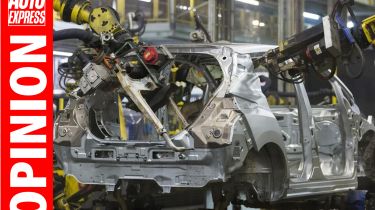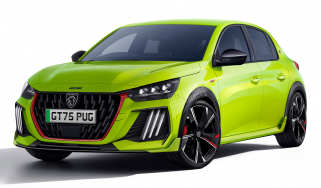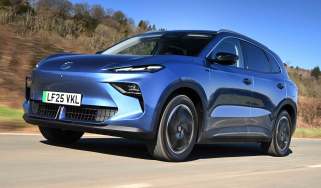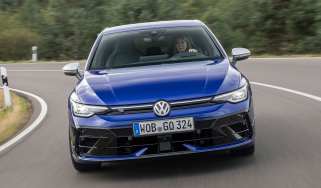'2018 was the year the UK car industry went backwards'
2018 was a disastrous year for the UK car industry with it going backwards in too many crucial areas, says Mike Rutherford

Up-to-the-minute UK auto industry stats I’ve just nicked show colossal changes in 2018 over 2017.
True, Jaguar Land Rover retained its position as our largest vehicle manufacturer. Equally good news was that, across the UK automotive scene, job numbers stayed the same (at 856,000), with at least 10 per cent of employees hailing from Europe (the same as in 2017). The icing on the cake was that our vehicle industry continued to turn over precisely £82billion.
• UK manufacturing drops by nearly half
But that’s where the positive consistencies end and the mostly negative changes kick in. It hurts me to say this, but 2018 was the year we went backwards in far too many crucially important departments.
In ’18 vs ’17, UK car and engine production, car registrations and car exports slumped. Also on the decline: the creation of new jobs, and the number of youngsters starting apprenticeships. The money invested in our automotive manufacturing industry plummeted by £1.4billion to £2.6billion. Not good.
Commercial vehicle makers fell from five to four, bus/coach builders from nine to eight. Honda and Infiniti served notice that they’re deserting the UK. We exported fewer cars and we slumped from 11th to 12th in global car production, with Russia passing us and the buoyant Czech Republic poised to tread us into ‘unlucky for some’ 13th place soon.
At the same time the number of big auto supply firms with UK bases decreased. Sales of diesels that politicians have declared war on plummeted. Fleet registrations dipped, as did used car purchases. CO2 emissions got worse, as politicians urged people to buy petrol not diesel.
But it wasn’t all bad news in 2018. Sales of petrol-electric and, to a lesser extent, pure-electric cars were up last year. And according to the Society of Motor Manufacturers and Traders, the number of workers in the UK who were reliant on diesel engine production jobs was actually higher in 2018 than it was in 2017.
An upturn in commercial vehicle production, in addition to a welcome growth in the percentage of car exports to the US and Japan, were other positives. The SUV sector was rare in that it grew, with the Nissan Qashqai being particularly popular among buyers.
In 2017 there were 34.7m cars on the road, compared with 34.9m last year. The total number of vehicles registered was also up – to a cool 40m for the first time. Not sure if that’s a good thing since the road and parking ‘networks’ aren’t expanding accordingly.
Much of the above doesn’t make for easy reading. But what follows does. In percentage terms at least, the number of private motorists buying their own cars actually increased in 2018 vs 2017. Conversely, the number of fleet buyers decreased.
Put another way, the most loyal, important and confident customers buying from UK manufacturers and dealers last year were people like you, dear readers: real-world consumers spending their own money acquiring cars for themselves. Buyers like you do more than most to support 856,000 motor trade and industry jobs in Britain. And never forget that, by paying your hefty motoring taxes, you also help prop up HM Treasury.
Do you agree with Mike about the UK car industry? Let us know in the comments below...
Find a car with the experts



